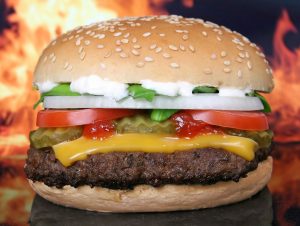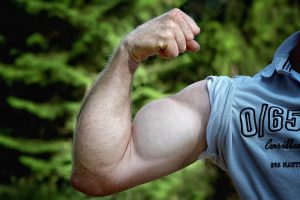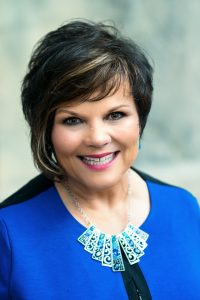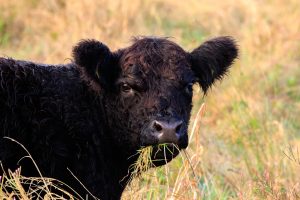blogger: Cynthia Ruchti
Writers are often asked for a bio–usually 30-50 words. Sometimes 100. A strong, compelling bio says a lot about an author.
How can we make sure we’re truly beefing up our author bios without making them muscle-bound?
The “two all-beef patties” method of beefing up your author bio:
Agents and editors want to see the heftiest part of your author bio devoted to who are you, what do you write, and what qualifies you to write the project you’re pitching. Usually author bios are written in third person. That might look like this–
Evelyn Everwriting creates pulse-pounding suspense for the Christian market. Her background as a criminal investigator for the NYPD adds realism to her stories. Her work with victim’s advocacy groups adds an emotional connection her readers have come to appreciate. A two-time Carol Award winner and 2018 Christy Award finalist, Evelyn conducts research between shifts in her loft apartment overlooking the city that never sleeps, and fleshes out her stories in a she-shed on her hobby farm in Upstate New York. #citysuspensewithcountryheart
Special sauce author bio:
Some authors pour on a little too much special sauce.
Prolific, bestselling, award-winning, super-nice and uber-talented author Evelyn Everwriting creates the most amazing pulse-pounding suspense for the Christian market, but really, her books could be read by anyone around the world…
An agent or editor somewhere just hit delete. “The most amazing” is a decision best left to the agent or editor.
Lettuce author bio:
Lettuce consider what’s healthy to add to a longer author bio. You have a PhD in Agronomy? If you write urban fantasy, that may not be helpful for an agent or editor. Instead, it comes across as an assumption that a PhD in anything is an automatic, “This guy can write!” (It isn’t always a given.)
You sailed solo across the Atlantic as an 18-year-old? Does that information apply to this book, or this genre? Is it an interesting tidbit? Most of the time, interesting tidbits fit better in radio interviews or blog posts or trivia contests than they do in book proposals…unless they matter to the book. But if you’re writing a book about not underestimating the courage of a teen or a cookbook about the wonders of dried seaweed, then it might matter.
Cheese author bio:
Some authors pull off a comedic bio with panache.
Axel Everwriting lives in the shadow of his famous wife–Evelyn–but has somehow managed to get a word in edgewise. A hundred thousand words, to be exact. His memoir is dull and listless, but his humorous devotional for spouses of writers–Just One More Page?–was nominated for a Nobel Peace Prize in 2016.
Axel can get away with a bio like that because he writes humor. On anyone else, it would be considered cheesy.
Pickles author bio:
Some author bios leave a sour taste.
Evelyn Everwriting began her writing career because nothing on the market was worth buying, much less reading. She specializes in writing for herself, a genre she invented–hostility horror. If anyone chooses to purchase one of her books, fine. But that’s not her goal. Art for arts sake is her tagline. Check out Evelyn’s blog: #jesusandmearenotonspeakingterms
Yeah, I’d turn that one down too. Because of the typo on art’s.
Onion author bio:
 How many layers are too many in an author bio?
How many layers are too many in an author bio?
Evelyn Everwriting writes. That’s obvious from her bestselling free Kindle download of her 50-page handbook for onion skin origami. And from her name. With a name like Everwriting, what else could she do but write? Evelyn is also a prolific speller, having won the coveted Logan Middle School Spelling Extravaganza all four years she participated. Yes, four years. She was a red shirt speller, because of a hangnail injury in eighth grade that necessitated her repeating that school year.
Evelyn and her husband Axel and their son Edsel and daughter Everly, who played the part of Annie in the off-off Broadway version of the play of the same name, share their New York loft apartment with two Great Danes and a Saint Bernard named Buffy. Buffy is named for Axel’s dearly departed mother.
When not writing, Evelyn enjoys rethreading used baseballs and sharpening her collection of No. 2 pencils. She and her husband are in the middle of a complicated bathroom renovation project. Following the success of her onion skin origami project, Evelyn is hard at work on an epic historical romance series set in the year 417 AD.
Evelyn, Evelyn, Evelyn…
Sesame seed bun author bio:
Fans of sesame seed buns know that a plain bun is missing a little something. It’s not the same. Beefing up your author bio may include double-checking to make sure you haven’t left out an important element. Or four.
Evelyn Everwriting is an author from Soho. You can learn more about her on her website, which is currently under construction.
Your turn. Imagine yourself an agent or editor getting a first glimpse at an author’s bio.  When WOULD PhD credentials be significant? How much heartfelt and homey is too much? How does the genre in which you write inform what you include in your bio? What does your bio need? What needs to be jettisoned to make it lean and effective rather than muscle-bound?
When WOULD PhD credentials be significant? How much heartfelt and homey is too much? How does the genre in which you write inform what you include in your bio? What does your bio need? What needs to be jettisoned to make it lean and effective rather than muscle-bound?
NOTE: No authors were harmed in the making of this blog post. The bios are imaginary. But you’d be surprised how close they come to bios we’ve seen cross our desks.
AND ANOTHER THING: Special thanks to the vegans and vegetarians who averted their eyes and kept reading.



Cynthia, you made me smile with this post. I kind of feel a little sorry for Axel. Also, I have a question for you. I’m trying to figure out how to show I’m qualified to write women’s fiction. Without degrees or credentials, are there other things we can include that qualify?
Great question, Jeanne. Do you work in women’s ministries, serve women in some way, have an active blog that addresses women’s needs, speak to women? With nonfiction, it’s much more important to include the “why you’re qualified,” but with fiction, it may be more subtle, like hosting a retreat for tired moms or even experience as a librarian, or…active member of ACFW’s Women’s Fiction Facebook loop, or “am a lifelong student of the nuances of the craft of writing women’s fiction.” None of those may work for you. But the “qualifications” section is VITAL in nonfiction. If you were, for instance, writing a book on Life-Affirming Interventions but were not trained in that, instead had seen one once, that’s not a strong bio point for nonfiction.
This makes sense, Cynthia. Thanks. I did work in women’s ministry a number of years ago, and my blog is geared toward women (though I do have some male readers) . . . so I’ll use this to play with it. 🙂
Cynthia, you continue to crack me up! “AND ANOTHER THING: Special thanks to the vegans and vegetarians who averted their eyes and kept reading.” I NEEDED that laugh today.
As far as bios, Ph.D. credentials only matter if they connect to the content of your book, for instance, if you write psychological thrillers, I would think a Ph.D. in Psychology might lend credibility to your ability to play with the mind. Heartfelt and homey can be too much if it runs more than a line, in my opinion. You want enough to connect at least a little bit on a personal level, but you don’t want to feel like you are best friends. Bios are a little bit like thesis papers in that you only want to include information that directly supports your genre or story (in this case).
Thanks for the entertaining post and great pointers. I hope to possibly see you at ACFW. If not, enjoy the conference and safe travels.
“Directly supports your genre or story.” Yes. I love reading creative bios that give me an idea of the personality of the author…if it aligns with the book they’re pitching or the brand they’re supporting.
Andrew Budek-Schmeisser will never be nominated for a Nobel Peace Prize; he embraces the spirit of Alfred Nobel’s work as an arms merchant, and Andrew’s Ferocious Faith-Filled Fiction will head-butt its way into your heart.
Way to capture the author’s personality!
Cynthia, Enjoyed this. I struggle greatly with my bio. I’ve done a million things, but when you put it on paper it looks straggly. I don’t have any degrees or great accomplishments. After my husband and I married, within the year I found we were expecting our first child. I determined to stay at home as caregiver. And I suppose being a wife and mother of 7 children (and one husband) could give me credentials to being a detective solving mysteries, a confidant patching up hearts, and a kook, oh, my bad, that was supposed to be a cook. LOL
Sometimes it takes someone else’s perspective to help us write our own bio. A trusted and wise fellow writer or mentor may offer insights as to how the “college of life experience” informs our writing credentials.
Another fun post, Cynthia. A Ph.D. might not be relevant to being a novelist, but maybe the liability of being thought a bit weird can be used to advantage with some wordplay. I tried to turn an odd background into something relevant in my Amazon bio. “Carol Ashby has been a professional writer for most of her life, but her articles and books were about lasers and compound semiconductors (the electronics that make cell phones, laser pointers, and LED displays work). She still writes about light, but her Light in the Empire series tells stories of difficult friendships and life-changing decisions in dangerous times, where forgiveness and love open hearts to discover their own faith in Christ.” No mention of the Ph.D. (which can be a turn-off to many). The old day job trained me in formal writing, not contemporary fiction styles, and I had to abandon many “good” writing habits. But the double meaning of “light” seemed useful to me. But I’m not an agent, so does that sort of thing appeal to pros like you?
Great way to turn that background on its heels and show a compelling connection.
Thanks for today’s chuckle. I have a shorter bio that I use when I am promoting a book and a longer version on my website. While author bios are usually written in third person, have you seen an author write one in first person that you found effective?
I haven’t personally seen a first-person bio that resonated. It’s hard to say, “I did this and I did that, and I’ve accomplished…and my books have…” without coming across as self-serving rather than informational.
It might make an interesting author interview, but that’s a different approach than the author bio that editors, agents, and readers expect.
Cynthia, I especially like your “onion author” bio! I see this one all the time when I work with authors to create the content for the “About” page on their website. As wordsmiths, we sometimes assume that we should tell our readers everything they could ever want to know about us. In reality, I believe we should give them just enough to tickle their taste buds. I recommend creating 50-word, 100-word, and 150-word bios in first and third person, plus crafting an informal bio that focuses on relationship, a more formal, here-are-my-qualifications bio, and a media bio.
Great insights about bios for websites and the press, too, Laura.
Guilty as charged. Now to take it down to the two patties.
This gave me quite a chuckle today. Good thoughts but written so humorously it made it fun.
Thank you, Cynthia. This is very helpful. Off to beef up my author bio.
Cynthia, I am still chuckling. You are SO funny and creative! I just had a few moments before we take some guests out to eat before our son’s wedding this Saturday, and I HAD to see what Books and Such was dishing out on the blog. I was not disappointed. We have to leave in a few minutes but I just had to comment. In all my marketing I attempt to be cohesive in my tag line, branding, and varying lengths of bios for different needs. No matter the length they all bear the seed of who I am and why I write and speak.
Thanks for a fun post filled with food, and topped with great garnishing of author education!
I have to zip!
I grew up in another century…18th to be exact. Living in the Adirondacks surrounded by forests, forts and frontiersmen, my family and I practically inhaled the pine-rich history of the area; not only through its stories, but living it in re-enactments at various historic sites.
Then I moved away, became a teacher, and walk for 40 yrs. in what seemed an urban desert.
No longer so “provincial,” I have learned to appreciate God’s much larger world and its people along the way. My historical fiction takes me back to memories of beautiful settings, but working with my students, has hopefully, added deeper layers and an understanding of my characters.
Loved the nod to vegans 🙂 But had no trouble moving past the excellent metaphors. Thanks so much.
Thank you, Cynthia! I will think of you and this blog every time I don’t order a Big Mac . . . which is always.